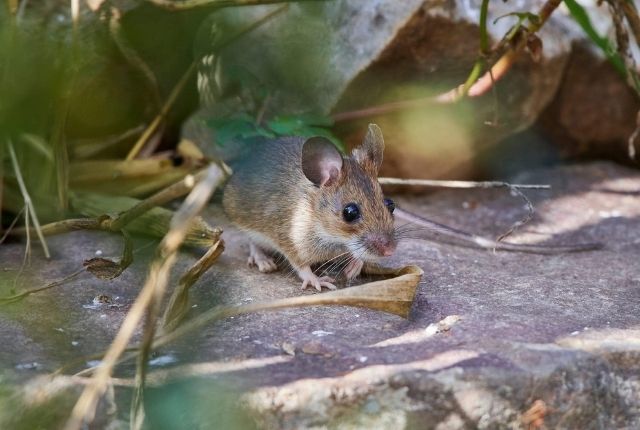The house mouse (Mus musculus) is one of the most common and adaptable rodents in the world. An awful lot of these little bugs get into homes and cause a lot of trouble. To get rid of pests effectively, you need to know how they live and behave. We’ll solve the mysteries of house mice and look at how they interact with their surroundings in this piece.
How House Mice Live
The normal length of a house mouse, without its tail, is between 2.5 and 3.5 inches (6 to 9 cm). Their fur can be light brown to dark grey. They are very flexible, which is one reason why you can find them almost everywhere people live.
One thing that makes them adaptable is that they can have babies. Every 19 to 21 days, a female house mouse can have a litter of up to six babies. This high rate of reproduction lets mouse numbers grow quickly in places that are good for them.
How house mice behave
As their name suggests, house mice are mostly nocturnal, which means they’re busiest at night. Because of this, people can’t see them as well and it’s harder to catch them.
Nesting: House mice hide their nests in safe, out-of-the-way places. They like to build their nests in dark, hidden places that are close to food. Wall spaces, attics, basements, and behind appliances are all common places for birds to nest.
What they eat: These mice eat whenever they can. They’ll eat almost anything, but grains and oats are their favourites. They can easily find food in human homes because they eat a lot of different things.
House mice are very protective of their nests and won’t go too far from them. They usually stay between 10 and 30 feet away from where they nest.
Grooming: House mice are very good at grooming, as are many other rodents. They clean their hair with their sharp incisors, which also helps keep their body temperature steady.
Cycle of Life
A house mouse’s life cycle starts with having babies. When a female has her babies, she feeds and cares for them and may move them to a different nesting spot if she feels threatened. As the babies get bigger, they become sexually mature at around 6 weeks old. This fast reproduction is what makes mouse numbers grow so quickly. The whole cycle can be as short as 6 to 10 weeks.
Having house mice as a problem
House mice are important to environments because they help spread seeds and give food to predators. However, when they get into people’s homes, they become a problem. They can make food unsafe, damage property, and spread illnesses. To get rid of pests, you often need to take effective control measures.
The first step to getting rid of house mice is to learn about their nature and how they act. Homeowners and pest control pros can better keep these unwanted guests away by figuring out where they like to nest and how they like to eat. Making your home mouse-proof and taking early steps to stop bugs can help you live in a place without pests.
At Mouse Control Bolton, We are professional, insured and licensed pest control exterminators who will eliminate mouse presence from your residential or commercial property at affordable prices using the best tools and products available to get the job done.
